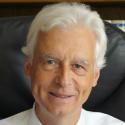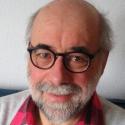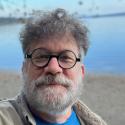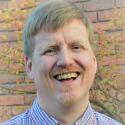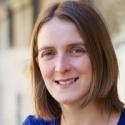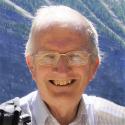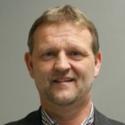2023 Scientists Network
- Image

The European Science Network is committed to two main purposes: (1) Increase the praise of God the Creator-Saviour through what humans study and know in His creation (Col 1:16) and (2) Put scientific findings in the context of His Word so that what we know about His creation will not obfuscate our knowledge of Himself (2 Cor 10:5).
In order to achieve its purposes, the European Science Network is geared to serve two kinds of audiences: (1) Scientists and Christians interested in science will obtain the knowledge, language, and courage to do science and speak about science within the framework of a Bible-informed Christian understanding of the cosmos. (2) Christians of all backgrounds will be helped to understand and interact with scientific findings and claims in a way that is truly apologetic, integrating scientific facts into the Christian worldview in an affirmative, active way rather than only defensively and reactively. At the same time, the demarcation lines will be demonstrated between scientific facts and their interpretation by naturalistic vs. Christian worldviews. We do not shy away from sensitive subjects like the evolution debate and ethical implications, engaging in constructive, respectful discussions.
Applicants should be involved in full-time scientific work or have a strong interest and background in the integration of science and Christianity. This Network will be led by Alexander Fink, Director of the Institute for Faith and Science, and Peter Imming, Professor of Pharmaceutical Chemistry in Germany.
Network Leadership
Network Speakers
Harald Binder is a passionate and inquisitive scientist (chemist). After a three-year period working as a teacher of chemistry and biology at a secondary school, he now works with the Christian organisation Studiengemeinschaft Wort und Wissen doing research and giving lectures. His topics of… Read more
Charlie Catlett is a senior computer scientist at Argonne National Laboratory and The University of Chicago who has focused his research for 40 years in the development of the Internet and WorldWideWeb, computer security, and high-performance computing, holding scientific leadership positions at… Read more
Paul Coulter lives in Lisburn, Northern Ireland, with his Chinese Malaysian wife, Gar-Ling, and their two teenage children. He holds degrees in medical genetics, medicine and theology (PhD). Having previously served as a medical doctor, cross-cultural pastor and lecturer in practical theology… Read more
Sharon Dirckx is an independent speaker, author and broadcaster whose work focuses on responding to the spiritual questions that people ask today. Originally from a scientific background, she has a PhD in brain imaging from the University of Cambridge and has held research positions in the UK… Read more
Alexander Fink is Director of the Institute for Faith and Science (Institut für Glaube und Wissenschaft) in Marburg, Germany (www.iguw.de). He studied physics at Bayreuth and St. Andrews (UK) universities and received his PhD at the Institute for Biophysics at… Read more
Peter Imming received degrees in pharmacy and chemistry and a PhD and venia legendi in pharmaceutical chemistry from a German university. He has been involved in drug chemistry teaching and research in Germany, the UK, China, Ethiopia and other countries. Until retirement in 2025, he was head of… Read more
Andy McIntosh holds an Emeritus chair in Thermodynamics at the University of Leeds and is also an adjunct professor of Engineering at Liberty University in Virginia. He has had a long scientific research career concerning mathematics, combustion and aeronautics, both in academia and in a… Read more
Thomas Schmidt first studied theology for some semesters. Then he focused on civil engineering and received a degree and a PhD in the field of earthquake engineering. After working in construction offices for several… Read more
Network Programme
Sunday, 21 May
Artificial Intelligence, "AI," is not a new concept, but in recent years has fueled amazing new capabilities, from sophisticated computer vision to natural language processing. Developed with enormous volumes and diversity of data and unprecedented computing power, large-scale AI systems have begun to manifest emergent---unplanned, unexpected, unexplainable---capabilities. We explore promising applications (each a sword with two-edges) and various facets of "intelligence" with an eye toward understanding the impacts of AI on culture and society.
Human identity is a topic for which many different kinds of answers are offered, from different spheres. What exactly are we? Are we merely advanced apes? Are we just machines? Do we have a soul? Some Neuroscientists and philosophers hold the view that the brain drives everything about us. All of our thoughts, decisions, memories, even religious beliefs are traceable to the chemical and electrical activity of our brains. What shall we make of this view? What about the mind and soul? This session will consider questions of human identity from the perspectives of neuroscience, philosophy and theology.
Monday, 22 May
Charlie Catlett is a committed evangelical Christian who has been involved in Internet and scientific supercomputing research for 35 years. He was among the pioneers to work on the technologies and protocols for the public internet in the 1980s, the web in the 1990s, and what we call "cloud" computing in the 2000's. Today, his research spans cybersecurity and artificial intelligence. How does he combine his expertise and Christian faith, immersed in the scientific community? What can we learn for Christian engagement in science and its influence on culture and society?
Popular science writings and programmes tend to place humankind as close relatives of chimpanzees and just one of many animal species on this planet. The rejection of human uniqueness has its roots in Darwin and is a serious barrier to the gospel. This workshop will consider biological, sociological and psychological evidence for unique features of our species . It will then suggest lines of apologetic arguments for the truth of the gospel from human nature and experience.
Tuesday, 23 May
During the last four decades a fast development of bio inspired engineering took place. The results are published under terms like Bionics, Biomechanics, Biotechnology, Biomimetics, Biomimicry, Bioengineering, Bioarchitecture. The talk presented will mainly focus on what a mechanical/structural/civil engineer can learn from these fields. Questions like: What can we learn from a frozen blanket applying the law of gravity? What can we learn from a tree – its seen and unseen parts? What can we learn from a tiger claw to design the optimal crane hook? How can we optimise structural elements learning from the human skeleton? Learning to “look” is one of the keys to grasp ideas from creation and its application in developing new constructions, identifying new mechanisms and concepts.
Biomimetics is a term used for copying engineering ideas from the natural world, and it has become a great source of innovative inventions. One of the most famous is the Wright brothers with their first heavier-than-air flying machine which directly copied the wings of birds. Other examples are the burdock plant which inspired the invention of Velcro, the Gecko which led to robots which can walk even upside down, the lotus leaf which has led to self-cleaning glass and the bombardier beetle which has a number of applications including a sprinkler system for targeting potential fire hazards and an engine additive injection system. How do these inspirations help us to build an argument for design in nature?
Wednesday, 24 May
Lawrence J. Henderson, professor for chemistry at Harvard at the beginning of the 20th century, was doing research on physiological buffer-systems. Hydrogen, oxygen and nitrogen and their molecules, water and carbon dioxide – building up earth’s atmosphere – work very nicely in essential tasks in physiological systems. This fact points to a teleological order. Henderson was convinced that there should be a mechanistic explanation which was – in his own words – “not at hand” and still isn’t. In this session, we will consider Henderson's claim and examine whether there are valid reasons to deny ideas of design.
Scientists collect data and try to make sense of them. Often, conflicting theories arise as worldview presuppositions enter into the interpretations. How can we compare different approaches and decide on the best explanation? We want to try to summarise and compare the different positions on how to think about scientific evidence within a Christian worldview. The audience is encouraged to ask questions!

